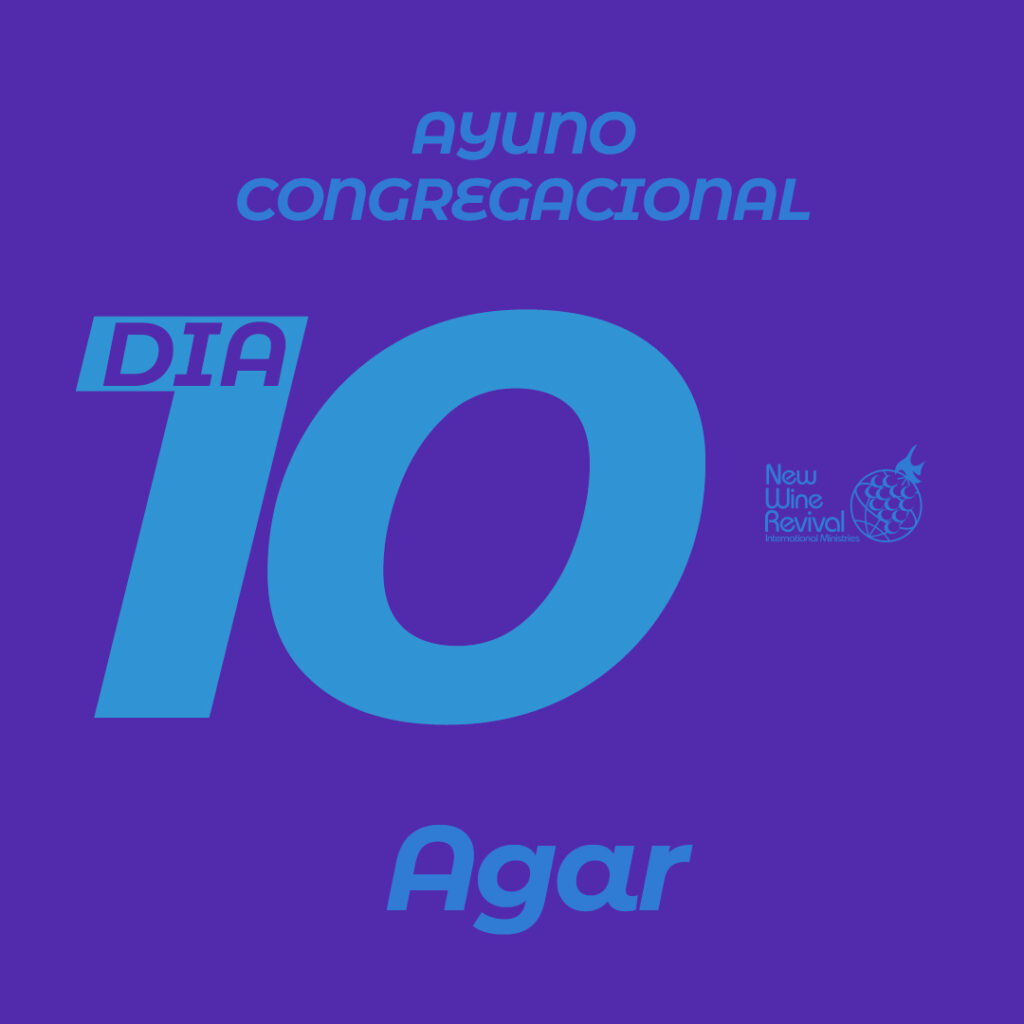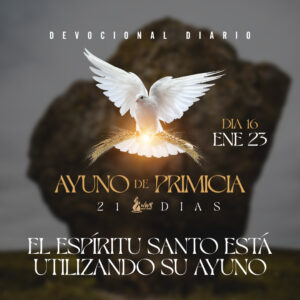
Cuando se habla acerca de las mujeres en la Biblia, se destacan aquellas que han sido famosas, pero poco se trata o se trata negativamente acerca de las mujeres esclavas como las esclavas de Sara, Lía y Raquel.
Agar, joven egipcia y esclava (Genesis 16:3) de Sara, y madre de Ismael (Genesis 16, 21). Agar -cuyo nombre significa “forastera’ o “huida”, (Génesis 21,9-21) fue sacada de Egipto cuando era una niña y vendida como esclava. Con Agar nos damos cuenta que desde esa época ya era costumbre el tráfico humano. Agar es una esclava, al servicio de otra mujer, Sara, esposa de Abraham. En esa época, pocas personas poseían esclavos para los trabajos domésticos, eran comprados como prisioneros de guerra, eran hijos nacidos de esclavos en la casa patriarcal, o se vendían a sí mismos como esclavos a causa de la miseria. Agar está destinada al servicio permanente de Sara, pues la liberación por el año jubilar (sabático), es concedida solo para esclavos hebreos. Agar no tiene palabra ante sus amos. Sara, la ama, decide completamente por Agar.
Entre muchos criados y criadas, Agar era tenida en gran estima por su ama Sara. En efecto, cuando Sara se dio cuenta que no podía dar un hijo a su esposo, ella hizo que Agar fuese la concubina de Abraham para que le dé un hijo; de esta forma, Sara no sería avergonzada frente a su pueblo y tendría “el hijo de la promesa”. Agar, tiene la peculiaridad de ser la primera mujer en la Biblia de “tener un vientre substituto”. En esta historia, ya podemos notar las clases sociales muy marcadas.
Al comprobar que Agar llevaba en su vientre el hijo de Abraham, Sara sintió celos por lo que maltratos y humillaciones eran más frecuentes contra la esclava egipcia quien no soporta esa situación y huye. Agar, una mujer sola en el desierto, huyendo y en peligro de muerte, buscando sobrevivir, se acerca a un manantial. Cerca del manantial en el desierto (Genesis 16:7-14) es en donde tiene un encuentro con el ángel de Jehová: “Y le dijo: Agar, sierva de Sara, ¿de dónde vienes tú?, y a ¿dónde vas? … Y le dijo el ángel de Jehová vuélvete a tu señora, y ponte sumisa bajo su mano”. Es la primera vez que Agar es llamada por su propio nombre y, por fin, alguien se da cuenta de sus sentimientos, aunque ella no había hablado con nadie pues -por ser esclava- le era prohibido tener comunicación con alguien. Debido a que el ángel le dice todo lo que está sucediendo en ella y le profetiza la situación con su hijo, Agar dice: “… Tú eres Dios que ve; porque dijo: ¿no he visto también aquí al que me ve?” (Genesis 16:13).
Agar se convierte en la primera mujer de la Biblia quien tiene un encuentro con Dios. Ese encuentro es en el desierto, durante su tiempo de dolor, de soledad, tratando de salir de la opresión. Jehová, el Dios que fija sus ojos en una esclava, sabe todo de ella y le exhorta a que se humille y regrese a donde sus amos. Aunque pareciese que esta petición es contradictoria proviniendo de Dios, Agar lo hace sin cuestionar pues ya ha tenido un encuentro sobrenatural con un Dios que la ama, la nombra por su nombre propio y le da valor para poder regresar al lugar donde fue humillada pero ahora, a pesar de ser esclava, siente que ya no está sola. Así, sabiendo que Dios nos ve, nos conoce, nuestra fe puede crecer. La historia de Agar refleja lo que encontramos en Mateo 5:8 “Bienaventurados los de limpio de corazón, porque ellos verán a Dios”.
Cuando nace Isaac, hijo de Sara, ésta teme que Ismael, el hijo de la esclava, suplante a Isaac, e interviene ante Abraham para que expulse a Agar. Pero Agar no renunciará a su hijo. Rompe con la tradición, y deja de ser una esclava sin poder de decisión, se rebela y huye por segunda vez y, por segunda vez tiene el encuentro con el Dios que ve “El Roí”. Dios le reafirma la promesa de que Él, Jehová, hará una gran nación de Ismael (Genesis 21:18). “Entonces Dios le abrió los ojos, y vio una fuente de agua; y fue y llenó el odre de agua, y dio de beber al muchacho” (Genesis 21:19). En este encuentro Jehová no solo ve a Agar, también le abre los ojos para que pueda coger agua del pozo (Pozo del Viviente-que-me-ve) Genesis 16:14.
Notamos que el encuentro del ángel con Agar nos da una señal temprana de las palabras de Pablo a los Gálatas que «ya no hay judío ni griego, esclavo ni libre, hombre ni mujer, sino que todos ustedes son uno solo en Cristo Jesús» (Gálatas 3:28). A Agar se le privó de todos sus derechos por ser egipcia (gentil), esclava y mujer. Para el ángel del Señor, Agar era una portadora de la imagen de Dios con gran valor, dignidad y propósito.
En Agar vemos que es la primera en muchos aspectos durante esta interacción entre Dios, Abraham y Sara. Dios hace una promesa a Abraham y Sara, ellos van a tener un hijo. Agar se embaraza (su vientre es usado) para tener el hijo que Sara no podía tener por ser estéril -Sara no confió totalmente en Dios. Agar, sin embargo, cuando tiene los dos encuentros con Dios, ella le cree y le obedece; por lo que Jehová cumple su promesa a Agar.
Es a través de Agar que nos damos cuenta como Dios nos pone en desiertos para que podamos tener ese encuentro especial con Él. Es en el desierto que Dios puede revelarse en nuestras vidas como Él quiera. Estando en la intimidad del desierto, el flujo del Espíritu Santo se hace más vívido “y fue lleno el odre (Agar) de agua (Espíritu Santo)”.
¿Se dan cuenta que quien parece una simple persona o nadie le da importancia, es valiosa para Dios? ¿Quién de ustedes se ha visto reflejada en Agar? La vida y experiencias de Agar enseñan, entre otras verdades: una nueva posición en lo relativo a las tentaciones; lo inútil de las acciones precipitadas en tiempos de prueba y dificultad; el cuidado que ejerce el Dios que todo lo ve sobre la persona que está sola; el propósito divino para la vida de cada persona, a pesar de cuán oscura y desolada sea; cómo Dios obra sus benevolentes propósitos por métodos aparentemente severos; y la fortaleza, consuelo y aliento que siempre acompañan a las experiencias difíciles de sus hijos.
Mujer, después de saber un poco más acerca de Agar, te fijas que Dios está también muy cerca de aquellas personas quienes son oprimidas, esclavas físicas y espirituales, con sueños frustrados, sin voz. Dios nos vela, nos cuida sin importar procedencia social, económica, cultural, étnica, o geográfica. Dios te da un nombre, te saca del anonimato para darte un refrigerio en tu vida. ¡¡¡Tu ABBA te EMPODERA!!!
Algunas características de Agar:
•Joven esclava egipcia
•Dada a Abraham como concubina
•Concibió a Ismael (“Dios escucha”)
•Visitada por el ángel del Señor
•Abraham expulsó a ella y a Ismael de su casa
•Recibió las promesas de Dios
Aplicación para nuestra vida:
•Debemos recordar que, a pesar de nuestros momentos de dolor, de duda, o cuando enfrentamos algo que parece imposible, “no hay nada imposible para Dios”. (Lucas 1:37).
• A pesar de que Dios nos cuida, nos da fuerzas, como cristianas no debemos actuar impulsivamente, o tomar decisiones sin consultar con Él. Si nos adelantamos a Dios, tenemos problemas, por eso debemos siempre recordar “En cuanto a Dios, su camino es perfecto” (Salmo 18:30).
•Dios nos da fortaleza en medio de la tormenta (Juan 14:1).
•Dios cumple Su promesa en Su tiempo, en el Kayros. El tiempo de Dios es perfecto (Eclesiastés 3:1-8).
•Dios ha prometido que cuida a los extranjeros; al huérfano, y a la viuda sostiene; y el camino de los impíos transforma (Salmos 146:9). Él protege a la persona que es débil pero que cree en Su poder.
ORACIÓN:
¡Mi Señor, cuán maravilloso eres! Gracias porque Tú nos enseñas muchas cosas, quizá no la habíamos sabido porque pensábamos que no tenían importancia. Sin embargo, ahora nos damos cuenta que todo, absolutamente todo, está en Tus manos y, por ser omnipotente, omnipresente, observas Todo. Gracias mi Padre por ser el Dios que ve, que nos distingues individualmente, nos das un nombre, y nos das comodidad en nuestro diario caminar. Gracias ABBA. En el nombre de Jesús de Nazaret, Te adoro y Te pongo en el centro de mi vida. Amén!!
Agar
When talking about women in the Bible, those who have been famous stand out, but little is said or only negatively said about slave women such as Sara, Lía and Raquel’s slaves.
Hagar, young Egyptian and slave (Genesis 16: 3) of Sarah, and mother of Ishmael (Genesis 16, 21). Hagar – whose name means “stranger” or “flight”, (Genesis 21: 9-21) was taken out of Egypt when she was a child and sold as a slave. With Hagar we realize that since that time human trafficking was customary. Hagar is a slave, in the service of another woman, Sarah, Abraham’s wife. At that time, few people owned slaves for domestic work, were bought as prisoners of war, were born children of slaves in the patriarchal household, or sold themselves as slaves because of misery. Hagar is destined to the permanent service of Sarah, since her liberation for the jubilee year (sabbatical) is granted only to Hebrew slaves. Hagar has no word before her masters. Sara, her lover, decides completely for Hagar.
Among many servants and maids, Hagar was held in high esteem by her mistress Sara. Indeed, when Sarah realized that she could not bear a son to her husband, she made Hagar be Abraham’s concubine so that she would bear him a son; in this way, Sara would not be ashamed in front of her people and would have “the child of promise.” Hagar has the peculiarity of being the first woman in the Bible to “have a substitute womb.” In this story, we can already notice the very marked social classes.
Upon verifying that Hagar was carrying Abraham’s son in her womb, Sarah felt jealous because of what mistreatment and humiliation were more frequent against the Egyptian slave who cannot bear this situation and flees from her. Hagar, a woman alone in the desert, fleeing and in danger of death, seeking to survive, approaches a spring. Near the spring in the desert (Genesis 16: 7-14) is where she has an encounter with the angel of Jehovah: “And he said to her: Hagar, Sarah’s servant, where do you come from? And where are you going? … And the angel of the Lord said, return to your mistress, and be submissive under her hand ”. It is the first time that Hagar is called by her own name and, finally, someone realizes her feelings, although she had not spoken with anyone because she -because she was a slave- she was forbidden to have communication with someone. Because the angel tells her everything that is happening in her and prophesies her situation with hers, her son, Hagar says: “… You are God who sees; because he said: have I not also seen here the one who sees me? ” (Genesis 16:13).
Hagar becomes the first woman in the Bible to have an encounter with God. That meeting is in the desert, during her time of pain, of loneliness, trying to get out of oppression. Jehovah, the God who fixes her eyes on a slave woman, knows all about her and exhorts her to humble herself and return to her masters. Although it seems that this request is contradictory coming from God, Hagar does it without question because she has already had a supernatural encounter with a God who loves her, names her by her own name and gives her the courage to return to the place where she was humiliated but now Despite being a slave, she feels that she is no longer alone. Thus, knowing that God sees us, knows us, our faith can grow. Hagar’s story reflects what we find in Matthew 5: 8 “Blessed are the pure in heart, for they shall see God.”
When Isaac, son of Sarah, is born, she fears that Ishmael, the slave’s son, will supplant Isaac, and intervenes before Abraham to expel Hagar. But she Hagar will not give up her child. She breaks with tradition, and stops being a slave without decision-making power, she rebels and flees for the second time and, for the second time, she has the encounter with the God that “El Roí” sees. God reaffirms the promise that He, Jehovah, will make a great nation of Ishmael (Genesis 21:18). “Then God opened her eyes, and she saw a well of water; and he went and filled the skin with water, and gave the boy drink ”(Genesis 21:19). In this encounter, Jehovah not only sees Hagar, he also opens her eyes so that she can draw water from the well (Well of the Living-One-who-sees-me) Genesis 16:14.
We note that the angel’s encounter with Hagar gives us an early sign of Paul’s words to the Galatians that “there is no longer Jew or Greek, slave or free, male or female, but you are all one in Christ Jesus” ( Galatians 3:28). Hagar was deprived of all rights to her for being an Egyptian (Gentile), a slave and a woman. To the angel of the Lord, Hagar was an image bearer of God with great worth, dignity, and purpose.
In Hagar we see that she is the first in many ways during this interaction between God, Abraham and Sarah. God makes a promise to Abraham and Sarah, they are going to have a child. Hagar becomes pregnant (her womb is used) to have the child that Sarah could not have because she was sterile -Sara did not totally trust God. Hagar, however, when she has the do s encounters with God, she believes him and obeys him; so Jehovah keeps his promise to Hagar.
It is through Hagar that we realize how God puts us in deserts so that we can have that special encounter with Him. It is in the desert that God can reveal Himself in our lives as He wants. Being in the intimacy of the desert, the flow of the Holy Spirit becomes more vivid “and the wineskin (Hagar) was filled with water (Holy Spirit).”
Do you realize that who seems like a simple person or nobody gives importance to him, is valuable to God? Who of you has been reflected in Hagar? Hagar’s life and experiences teach, among other truths: a new position when it comes to temptations; the uselessness of hasty actions in times of trial and difficulty; the care exercised by the all-seeing God over the person who is alone; the divine purpose for the life of each person, however dark and desolate she may be; how God works out his benevolent purposes by seemingly severe methods; and the strength, comfort, and encouragement that always accompany difficult experiences for her children.
Woman, after knowing a little more about Hagar, you notice that God is also very close to those people who are oppressed, physical and spiritual slaves, with frustrated dreams, without voice. God watches over us, takes care of us regardless of social, economic, cultural, ethnic, or geographical origin. God gives you a name, He takes you out of anonymity to give you a snack in your life. Your ABBA will EMPOWER you !!!
Some characteristics of Agar:
• Young Egyptian slave
• Given to Abraham as a concubine
• She conceived Ishmael (“God listens”)
• Visited by the angel of the Lord
• Abraham expelled her and Ishmael from their home
• she received the promises of God
Application for our life:
• We must remember that, despite our moments of pain, doubt, or when we face something that seems impossible, “there is nothing impossible for God.” (Luke 1:37).
• Although God takes care of us, gives us strength, as Christians we should not act impulsively, or make decisions without consulting with Him. If we get ahead of God, we have problems, so we must always remember “As for God, his way it is perfect ”(Psalm 18:30).
• God gives us strength in the midst of the storm (John 14: 1).
• God fulfills his promise in his time, in the Kayros. God’s timing is perfect (Ecclesiastes 3: 1-8).
• God has promised that he takes care of strangers; the orphan, and the widow he sustains; and the way of the wicked transforms (Psalm 146: 9). He protects the person who is weak but who believes in his power.
PRAYER:
My Lord, how wonderful You are! Thank you because You teach us many things, perhaps we had not known it because we thought they were not important. However, now we realize that everything, absolutely everything, is in Your hands and, being omnipotent, omnipresent, You observe Everything. Thank you my Father for being the God who sees, that you distinguish us individually, you give us a name, and you give us comfort in our daily walk. Thanks ABBA. In the name of Jesus of Nazareth, I adore You and I place You at the center of my life. Amen!!



